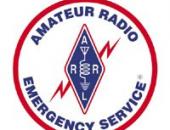Amateur Radio Emergency Service
Backgrounder: Amateur Radio Emergency Communication
For More Information:
Public Relations and Media Relations
(860) 594-0328
email
What do Amateur Radio operators do during and after disasters?
Amateur Radio operators set up and operate organized communication networks locally for governmental and emergency officials, as well as non-commercial communication for private citizens affected by the disaster. Amateur Radio operators are most likely to be active after disasters that damage regular lines of communications due to power outages and destruction of telephone, cellular and other infrastructure-dependent systems.
How do Amateur Radio operators help local officials?
Many radio amateurs are active as communications volunteers with local public safety organizations. In addition, in some disasters, radio frequencies are not coordinated among relief officials and Amateur Radio operators step in to coordinate communication when radio towers and other elements in the communications infrastructure are damaged.
What are the major Amateur Radio emergency organizations?
Amateur Radio operators have informal and formal groups to coordinate communication during emergencies. At the local level, hams may participate in local emergency organizations, or organize local "traffic nets" using VHF (very high frequencies) and UHF (ultra high frequencies). At the state level, hams are often involved with state emergency management operations. In addition, hams operate at the national level through the Radio Amateur Civil Emergency Service (RACES), which is coordinated through the Federal Emergency Management Agency, and through the Amateur Radio Emergency Service (ARES), which is coordinated through the American Radio Relay League and its field volunteers. Many hams are also involved in Skywarn, operating under the National Weather Service and provide emergency weather information to the NWS for analysis and dissemination to the public.
Is Amateur Radio recognized as a resource by national relief organizations?
Many national organizations have formal agreements with the Amateur Radio Emergency Service (ARES) and other Amateur Radio groups including:
- Department of Homeland Security -- Citizen Corps
- Federal Emergency Management Agency
- National Communications System
- Salvation Army
- National Weather Service
- Association of Public Safety Communications Officials
###
A downloadable PDF for media, describing Amateur Radio emergency communications capabilities.
About ARRL >> Media and Public Relations >> Reporter/Media Information >> Amateur Radio Emergency Communication





